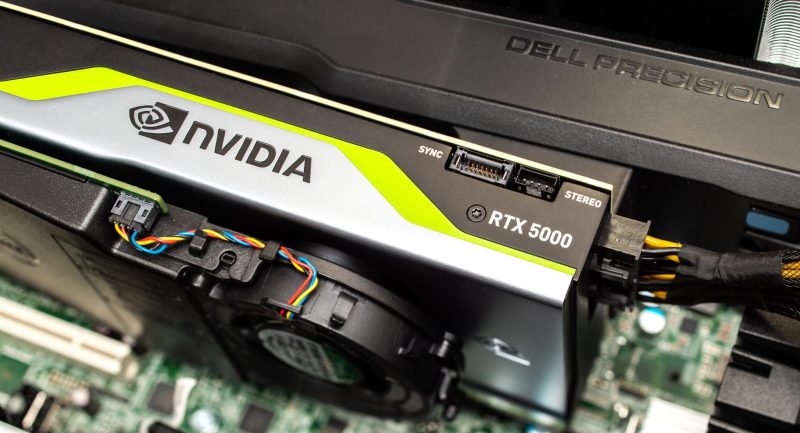The Biden administration is considering implementing country-specific caps on the export of advanced artificial intelligence (AI) chips produced by companies like Nvidia and Advanced Micro Devices (AMD).
This potential policy, driven by national security concerns, seeks to regulate how AI technologies are distributed globally, with a particular focus on limiting the AI capabilities of certain nations.
The move could place restrictions on exports to countries with growing AI ambitions, such as those in the Persian Gulf, where the appetite for AI data centers is rising.
The caps would form part of a broader strategy by the US to maintain its technological edge while preventing AI technologies from being used in ways that could pose risks to global security.
Tighter controls to build on existing chip export restrictions
The proposed restrictions would add to existing limitations on AI chip sales, which initially targeted China.
In 2021, the Biden administration introduced sweeping regulations that curtailed exports of AI chips to over 40 countries, citing fears that advanced technology could be diverted to China and other nations that could use it for purposes that counter US interests.
Under the new approach, the US Commerce Department’s Bureau of Industry and Security could set specific limits on how many AI chips can be exported to individual countries.
This would allow Washington to maintain stricter control over how nations use these technologies, ensuring that AI development aligns with the US’s national security objectives.
The agency has already introduced a framework to ease the licensing process for AI chip shipments to data centers in countries like the United Arab Emirates and Saudi Arabia.
These regulations, introduced last month, are part of an ongoing effort to strike a balance between fostering global AI development and maintaining control over the technology’s distribution.
AI export caps and broader diplomatic goals
Some US officials view semiconductor export licenses, particularly for Nvidia’s chips, as leverage in broader diplomatic efforts.
In addition to containing China’s AI capabilities, the US is considering using export restrictions to encourage key global players to reduce their dependence on Chinese technology.
The discussion comes as countries worldwide pursue “sovereign AI,” aiming to develop their own AI systems independently of foreign technology.
As demand for AI processors surges, Nvidia’s chips have become indispensable for data-center operators, making the company a central player in the global AI market.
However, US officials are wary of how nations might use these powerful chips, particularly in countries with extensive surveillance systems that could use AI to bolster internal control.
Tarun Chhabra, senior director of technology at the US National Security Council, emphasized the need for caution in exporting AI chips, especially to countries with robust internal surveillance apparatus.
The concern is not only about the risks to human rights but also the potential impact on US intelligence operations abroad.
Risks of foreign AI development and global competition
Another concern driving the proposed caps is how global AI development could impact US security.
Although countries like China are working to develop their own advanced semiconductors, their chips still lag behind top American offerings.
However, the US fears that if foreign companies like Huawei eventually catch up, it could weaken America’s influence in shaping the global AI landscape.
Some officials argue that this is a distant concern, suggesting that the US should adopt a more restrictive approach to chip exports while it still holds a competitive advantage.
Others caution that making it too difficult for countries to access US technology could push them to seek alternatives, potentially aiding China’s rise in the sector.
Challenges in enforcing AI chip export restrictions
Implementing country-specific caps on AI chip exports could be a significant challenge for the Biden administration.
Drafting a comprehensive policy, enforcing it, and managing the potential diplomatic fallout would be difficult, especially in the final months of President Biden’s term.
It’s unclear how chipmakers like Nvidia and AMD would react to the proposed rules, as they have significant stakes in global markets.
In 2022, when the Biden administration first issued regulations limiting AI chip exports to China, Nvidia quickly redesigned its offerings to continue selling in the Chinese market.
A similar response could be expected if new country-based caps are introduced.
Despite the ongoing deliberations, the Biden administration has already slowed the approval of high-volume AI chip exports to regions like the Middle East.
However, there are signs that things may change soon.
The new rules for shipments to data centers allow for specific customers to be pre-approved based on security commitments, which could make it easier to issue licenses in the future.
Balancing AI innovation with national security
As AI technologies continue to advance, the US is working to balance fostering innovation and collaboration with the need to protect national security.
The potential caps on AI chip exports reflect growing concerns about how AI could be used in ways that may not align with US interests.
As the global AI race intensifies, it remains to be seen how the US will manage its technological dominance while navigating complex international relationships.
The success of this policy will hinge on its ability to protect US security while still allowing American companies to thrive in a competitive global market.
The post Why is US planning country specific cap on AI chip exports by Nvidia and AMD? appeared first on Invezz


